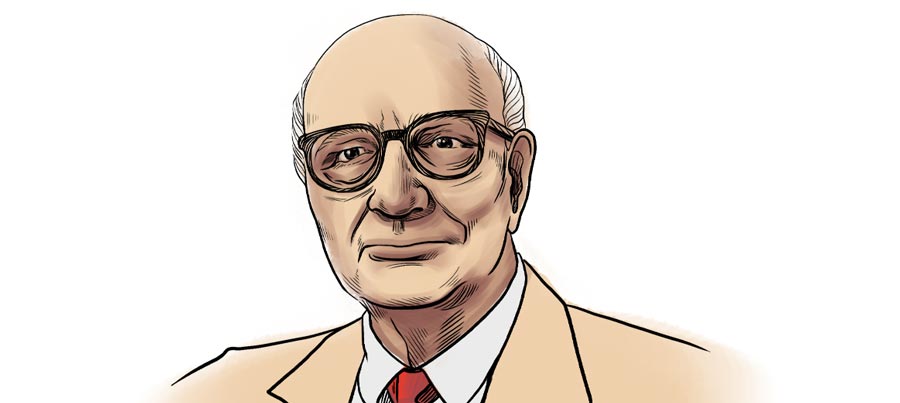 The Volcker Shock was a great event in the late 1970s and early 1980s which reshaped the world and marked the decisive end to the post war period. It may be happening again.
The Volcker Shock was a great event in the late 1970s and early 1980s which reshaped the world and marked the decisive end to the post war period. It may be happening again.
By the end of the 1970s western political leaders were in a state of confusion. The fiscal and financial tools they had used for three decades to manage the economy, conceptualised as Keynesian demand management, no longer worked and everywhere both unemployment and inflation were going up at the same time. This was a new phenomena and seemingly no one knew how to deal with this. Until Paul Volcker was appointed the head of the US Federal Reserve.
The story of the Volcker Shock is told in detail here:
How the Fed ended the last great American inflation — and how much it hurt
The short version goes like this: In 1979 Jimmy Carter appointed Paul Volcker the head of the US Federal Reserve (the US central bank). He then sharply increased interest rates in two waves stretching into 1981. This caused a deep recession in the US and marked a turn towards high unemployment but much lower inflation.
But the Volcker shock had world wide ramifications. The higher US interest rates caused the US dollar to significantly increase in value and other currencies to fall – thus exporting inflation from the US to those other countries. Soon interest rates were rising everywhere, the recession became world wide and unemployment surged everywhere. This had enormous and widespread political impacts which included:
The surge in the dollar accelerated the deindustrialisation of the US rust belt and the crushing of organised labour in the US
It drove the severity of the economic downturn during Thatcher’s first term and radicalised her program, the resulting increase in unemployment marks the start of the decline in organised labour in the UK
It capsized Mitterand’s leftist economic strategy in 1983, a definitive moment of defeat for European Social Democracy
It caused a huge number of what were then called Third World countries to default on dollar denominated loans (because the surge in the dollar meant loan repayments suddenly became much more expensive). This in turn meant the sudden imposing of intense austerity in many countries causing much political instability.
The post Volcker economic crisis and austerity in Argentina pushed the military junta in to a populist but ultimately disastrous military adventure in the Falklands, causing their downfall and guaranteeing Thatcher’s re-election in 1983.
The world wide recession precipitated by Volcker caused the price of oil to collapse. The Soviet Union, along with most of its east European satellites, had taken out dollar loans to finance tech imports in order to modernise their floundering planned economies. As the dollar and US interest rates suddenly soared the repayments on those loans became became vastly more expensive. The Soviet Union was particularly hard hit because its main foreign exchange earner, oil exports, was suddenly earning far few dollars. Across the peoples democracies austerity was imposed shredding the last remnants of popular support for the regimes (in Romania it actually caused widespread malnutrition as food exports were prioritised) and by the mid-1980s most eastern satellites were insolvent. In the USSR it precipitated the election of a reforming leader in Gorbachev. The rest is history.
Now the US Fed is once again leading the world with aggressive monetary tightening and pushing up US interest rates. This has caused the dollar to climb in value as hot money flows to the US. This has already caused numerous economic shocks across the developing world. The US is once again exporting inflation. It will deepen the looming Eurozone recession. It has been a major factor in generating the market volatility that has brought down the Truss government. A world wide recession now looks very likely.
The US, unlike the Europe and a lot of the developing world, is self sufficient in energy (because of fracking). The US Fed is already indicating more tightening and high interest rates are likely. It’s beginning to look like a sort of Volcker Shock 2.
The next year to eighteen months will expose how deep this second dollar shock is going to be and what the political impacts will be around the world. And of course we have the war and the deepening economic disorder in China as it’s long delayed restructuring is forced upon it. Very deep uncertainty prevails.
